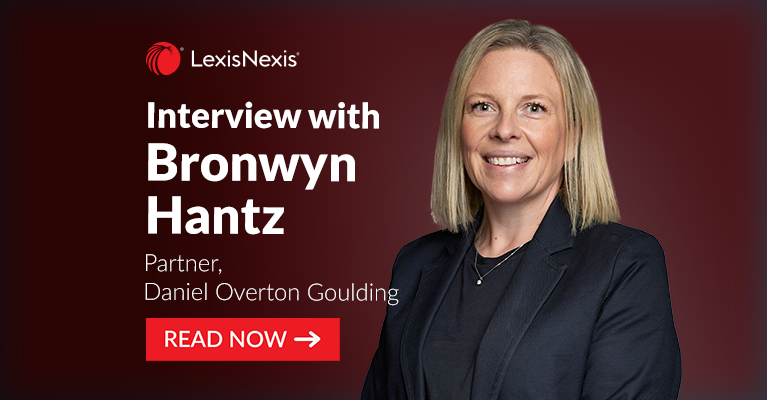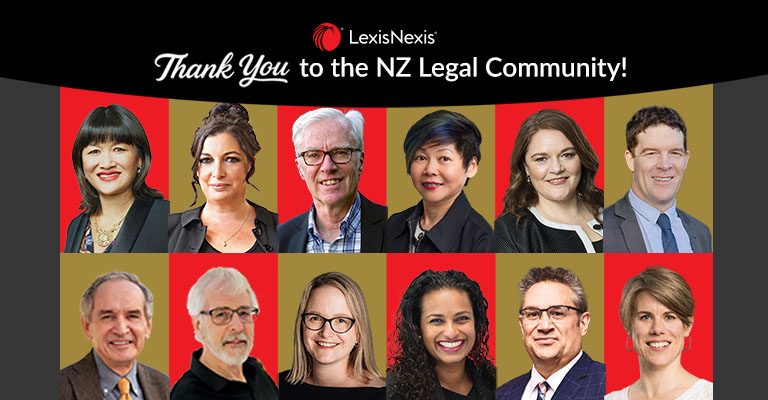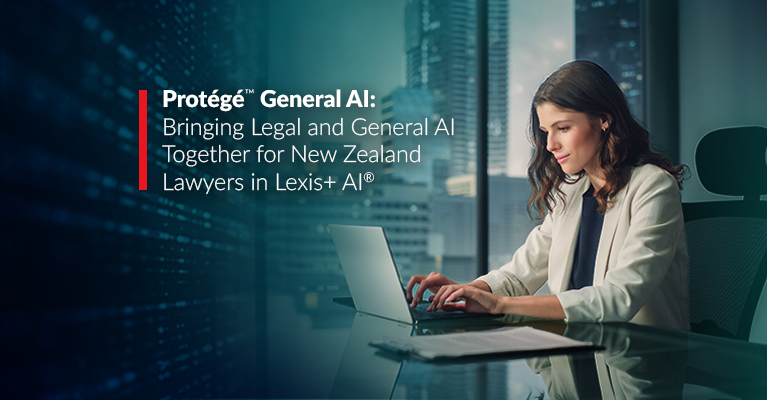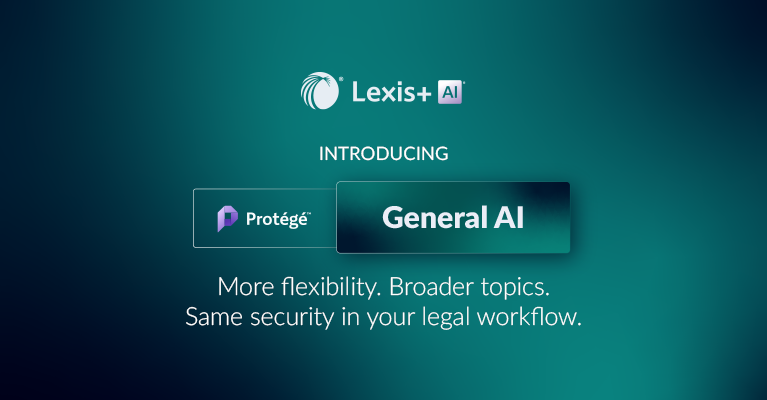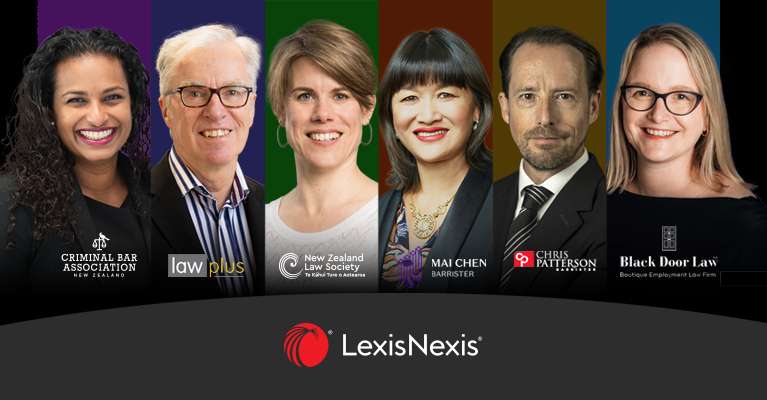Summary The empathy advantage From server to cloud Competing with larger machines The Ferrari and the potholes The enduring powers problem The constant foundation Originally published...
Summary The year legal AI became real Voices shaping the profession A year worth remembering Contributors 2025 There's a curious phenomenon about how we experience time. When our days are...
Summary The problem with platform hopping How the models differ Security without compromise Beyond legal research The speed of adoption Originally published by NZ Lawyer . Republished...
Summary Introducing Protégé General AI General AI Models Available in Protégé for New Zealand Legal Workflows Practical Use Cases for Lawyers But as AI becomes more common in legal practice...
Summary The efficiency revolution Levelling the playing field Managing the transition carefully Specialised practice applications The evolution of legal service delivery Maintaining quality...

Summary
Originally published by NZ Lawyer. Republished with permission.
Eva Ho is no stranger to unfamiliar territory. Long before becoming principal at Focus Law in Auckland, she spent five years in Hong Kong studying and then practicing as a social worker, moving through crowded neighbourhoods, listening to families in crisis and searching for solutions that rarely had clear endings. The work she does today looks very different, but her motivation remains the same: helping people find resolution.
That instinct to adapt now shapes her response to the latest force transforming her profession—artificial intelligence. While some lawyers worry AI will make junior staff redundant, Ho sees it as another opportunity to adjust – for the better - much like the cultural and career transitions she has already navigated.
Drawing on her dual background in social work and law, she has chosen to embrace AI cautiously, viewing it as a tool that can widen access to justice, give boutique firms a fairer footing, and still preserve the human connection at the centre of her practice.
At Focus Law, she leads a practice specialising in family, property, commercial and trust law, serving clients with an overseas background. And just as she once transitioned from social work into law, she is now adjusting again—this time to the powerful impact AI is having on legal work in New Zealand. Unlike some of her peers, Ho isn’t alarmed about lawyers becoming redundant. “AI does not replace lawyers. But lawyers that use AI will soon replace those lawyers that do not use AI in their work.” Ho quotes from another colleague.
“It all depends on how you use it,” she told NZ Lawyer. “You can't really say generically, ‘oh, they're going to lose their job now’ – it’s not quite like that… you need to fit all the moving parts to it, one being me, I'm one of the moving parts. My junior is another moving part, and then we all fit into this new tool,” she explained.
“We are adapting ourselves to the tool, [it’s] not the tool adapting to us. From the printing press to the light bulb, from computers to the invention of internet, AI is another milestone in human history that we need to embrace. We simply cannot avoid AI playing a part in our lives.”
The human connection
This key insight may have come more quickly to Ho than to others, shaped by a lifetime of adapting to new environments and approaching problems from different angles.
Early in her career, she decided that her efforts in social work often resulted in a lack of definite outcomes.
“The law is probably a bit more on the stiff side – but I still wanted to find a connection between human beings and services that I can render to them to help them resolve their problems.” She recognised that problems could be resolved via a social work way or by legal means – and she acquired the skills to straddle both methods and put them to work at her own firm.
“It's a good intermediary of the two – I come from two worlds.”
She deliberately chose areas of law that maintain human connection rather than purely corporate work.
"I am helping people whilst I am delivering a legal service," explains Ho. "I do some human side of law, so a little bit more softer and with individuals and people as the focus. You actually deal with people's problems instead of the problems of a corporation."
This people-first approach proves essential when working with clients from different cultural backgrounds. Many of Ho's clients struggle with New Zealand's legal framework, particularly around relationship property and family law.
"They might not be so attuned to the legal principles in NZ family law," says Ho. "Their thinking may be laden with Chinese culture and history of thousands of years.” For example, being married or not being married could mean a world of difference when it comes to property rights in Asia. Another example is whenever they deal with a child, they use the word ‘custody’.
"This is wrong, children are not properties of their parents, there is no such thing as keeping the children for one’s sake. The first and foremost criteria should be the child's best interest. It's not so much the father's wishes or the mother's rights, it should be what is best for the child. One should not talk about ‘custody rights’, they should instead think about ‘care’ of the child.”
There is still a very strong notion that financial contribution is much bigger than non-financial contribution. “The bread winner of the family should wear the pants and have a bigger say.” A lot of clients were surprised to find out that stay at home mothers will now have a statutory claim for the years of career forgone because she stayed at home to look after the children.
Her solution is direct education. Clients need to understand the legal system they're operating within, whether through befriending lawyers for informal advice or paying for proper consultations.
"If they have to live in this society, they need to know about the laws in the society," explains Ho. But she adds that this is true of any person not familiar with New Zealand’s legal environment, not just those with an overseas background.
"These are all just layman beliefs versus what the legal framework is."
The AI advantage
Ho's embrace of artificial intelligence has transformed her practice. She's candid about her limitations with traditional research methods and how AI has bridged that gap.
" I don’t need to rely on a junior to do my research" says Ho. "AI is really the most resourceful tool I have ever used. I do not need to pour over hundreds of pages to find the supporting case law for my argument.“
Ho uses Lexis+ AI with the Protégé AI assistant, a step-change in technology that has created what she describes as a dramatic shift for boutique law firms such as hers. Where she might previously read the authorities before trial, AI now allows her to review summaries of many more cases for and against her arguments, selecting those with similar factual matrix.
Armed with this knowledge during a dispute, "I can just pick the right one and distinguish the rest," said Ho. She believes AI creates a more level playing field.
"If you don't use AI, you're really going to be left behind, because you won't be as productive, as effective and as fast."
However, she emphasises the need for careful verification. Not all AI tools are equal, and some produce unreliable results. Ho said she has been using 3 AI tools regularly in her work and found Lexis+ AI Protégé the most relevant.
"You do really need to read their results and look at the case that they quoted," explains Ho. She recalls an experience where her opponent in a dispute cited bogus cases that appeared to rely on publicly available versions of ChatGPT.
"It was totally bonkers. I was so angry about it, I raised it to the adjudicator. I said, ‘these are not cases. What are they talking about?’"
Personal approach
Ho's firm culture emphasises responsiveness and personalised service. Being smaller than major firms allows her to care more about individual outcomes.
"I provide more personalised service in the sense that I care about the outcome more as how they affect them as an individual," says Ho. "We think about people's feelings and how the feelings may affect the outcome, financial or otherwise."
This approach particularly suits family and employment law, where human factors significantly influence judicial decisions.
Outside work, Ho maintains an active lifestyle, hoping to be at the gym twice weekly and playing badminton three to four times per week when courts are available.
Access to justice implications
Ho sees AI's potential to improve access to justice, particularly in courts where self-representation is common. Family and employment courts already see many unrepresented litigants, and AI could help them navigate complex legal terrain.
"I think it helps them to get up to speed," says Ho. Some of her family law clients already provide her with case law they've researched independently.
Her social work background gives her particular insight into access to justice issues. "I thrive as a businesswoman, I also think that I contribute to other people and help them with their problems and the issues,” she said.
The technology represents more than just efficiency gains – it's about democratising legal capability. For practitioners like Ho, who combine cultural understanding with technological adoption, AI offers a pathway to compete with larger firms while maintaining the personal touch that smaller practices provide.
Ho's story illustrates how a willingness to adapt – whether from social work to law, or from traditional research to AI-assisted practice – can create competitive advantages. Her multicultural background and experience adjusting to new environments have prepared her well for the technological shifts reshaping legal practice.
Eva Ho is the Director of Focus Law, founded in 2005 and based in Newmarket, Auckland. Focus Law has built a reputation for delivering practical, client-focused legal solutions. Their multilingual team — fluent in English, Mandarin, Cantonese, and Shanghainese — reflects their commitment to serving a diverse clientele with cultural awareness and care.
Lexis+ AI with Protégé – a personalised legal AI designed to help you make informed decisions faster and transform your legal work – has now launched in New Zealand and is available to legal professionals across the country.
Discover Lexis+ AI with Protégé features and book your Free Demo by submitting the form below:

